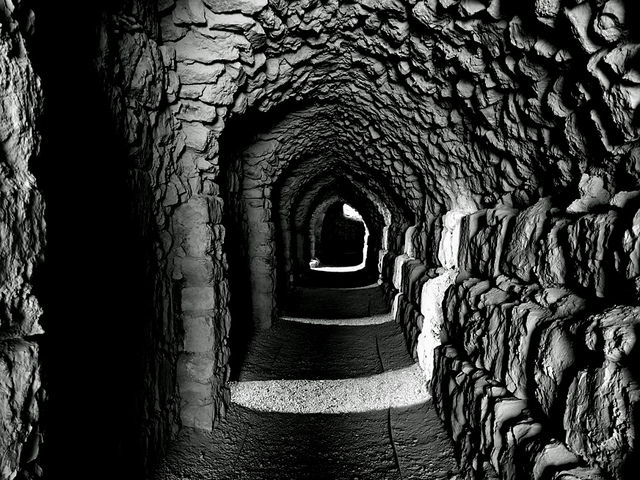
The Beat
Doing a number on profiling
There’s a push for Victoria Police to collect race and ethnicity data, a move that could help monitor the effectiveness of measures to counter racial profiling. Following a prominent 2013 Federal Court case, Victoria Police initiated a three-year action plan to target this issue. Included was a pilot initiative that required police to issue receipts every time an individual was stopped and searched, since abandoned due to the limited benefits recognised. Respondents expressed a preference for a more discretional approach. Race data collection programs currently exist in the UK, Europe and North America. See the report here (PDF).
Shady business
Interpol released a report earlier this month exposing the scale of corruption in the forestry sector (see PDF here). According to the report, such behaviour costs the industry US$29 billion annually. Corruption commonly manifests itself in the form of bribes in return for officials—often those in government forestry agencies—turning a blind eye to the passage of illegal timber or other illicit items. The report recommended utilising INTERPOLs Global Focal Point Initiative, along with institutional reform and capacity-building to counter corruption.
CT Scan
A deadly Monday around the world
Australia woke on Monday to news of two deadly terror attacks. Twelve people were killed and many others injured after a truck drove through a crowded Christmas market in Berlin. The attacker is still at large and Daesh claimed responsibility for the attack. Meanwhile in Ankara, Russia’s Ambassador to Turkey Andrei Karlov was assassinated at an art gallery exhibition by an off-duty Turkish police officer. Turkish authorities have linked the assassin to US-based cleric Fethullah Gulen but these claims are unverified. The assassin was caught on video shouting in Arabic ‘Don’t forget Aleppo, don’t forget Syria’ and ‘God is great! Those who pledged allegiance to Muhammad for jihad. God is great!’ The Guardian has an interesting piece on why the assassination may end up bringing the two countries closer together.
Attack in Karak
Ten people were killed and 34 were injured after a series of attacks in and around the Jordanian town of Karak on Sunday. Seven of the dead were Jordanian security officers, while one Canadian tourist was killed and another injured in the attack. Most the casualties occurred when the gunmen attacked Karak Castle—a Crusader-era fort and major local tourist attraction. The gunmen, linked to Daesh, were killed or captured, and a weapons cache containing explosives and guns was found at their apartment.
Checkpoint
Unruly herds
The Cameroon–Nigeria Trans-border Security Committee met in Yaounde last week to discuss security challenges along their border. It was the committee’s fifth session since its establishment in February. The discussion raised common security issues including illicit arms trading, banditry, drug and human trafficking and illegal immigration. The unrestrained movement of cattle is also a key cause for concern—semi-nomadic cattle herders based across Nigeria and Cameroon regularly clash with Nigerian farmers with deadly consequences. The discussion aimed to facilitate an exchange of best-practice on security and foster goodwill between the two countries.
In agreement: Lee and Duterte
President of the Philippines Rodrigo Duterte and Singaporean Prime Minister Lee Hsien Loong have agreed to improve their collective border security. Faced with the threat of intensifying transnational terrorist activity by ISIS and Abu Sayyaf insurgents in the Sulu archipelago, the two countries will collaborate to manage transnational threats. Both leaders also cited their commitment to stop drug trafficking said Filipino Foreign Secretary Perfecto Yasay Jr. Duterte’s visit to Singapore was apparently part of a regional tour to become further acquainted with national leaders before the Philippines takes chairmanship of ASEAN next year.
First Responder
Fiji underwater
Fiji has suffered some of the worst flooding in a decade as a tropical depression bought heavy rains to the Pacific island nation. The Fijian government, which continues recovery efforts after February’s Category 5 Cyclone Winston, was forced to evacuate 3000 households from temporary tent-accommodation into 50 evacuation centres, alongside those left homeless from the current flooding. The rain caused 14 landslides and closed roads, with Assistant Minister for local government, infrastructure and transport, Vijay Nath, suggesting that the landslides were being exacerbated by Fiji’s recent drought. The floods are expected to compound the reconstruction bill from both extreme weather events to $1.3 billion.
Solomon’s resilience
On the subject of compounding disasters, the Solomon Islands has been recovering from magnitude 7.8 and 7.0 earthquakes off Makira Island on December 17 which affected almost 10,000 people. The local director of World Vision, Janes Ginting, praised island communities for evacuating to higher ground as soon as tsunami warnings were triggered. Director of the National Disaster Management Office, Loti Yates, outlined education, health and shelter as the key priorities for reconstruction. A preliminary damage assessment from Unicef working with The National and Provincial Emergency Operation Centres can be found here.

